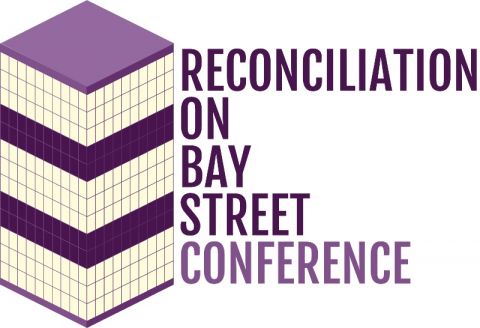
On Saturday, February 2, the Queen’s Indigenous Law Students’ Alliance (ILSA) and Corporate Law Club (CLC) will team up to present the first-ever “Reconciliation on Bay Street” Conference at Queen’s.
Designed to engage law and business students alike, the conference will explore the theme of economic reconciliation and the roles that Indigenous and non-Indigenous communities can play in its attainment. The event will kick off with a screening of the 2018 documentary Reconciliation on Bay Street by filmmaker Andrée Cazabon that features Bridging Finance CEO and Dean’s Council Vice-Chair David Sharpe, Law’95. A Q&A with the two of them will follow.
Organizers will also host a variety of workshops and guest speakers throughout the day, many of whom are Indigenous lawyers and professionals. The event will finish with a keynote address from the President of the First Nations University of Canada, Professor Mark S. Dockstator, on inspiring future leaders to contribute to reconciliation in both their professional and personal lives.
When asked what inspired this collaborative effort, Lauren Winkler, Law’20, event co-organizer and ILSA representative, cites viewing the film as a main factor.
“Last spring, David Sharpe shared the trailer for Reconciliation on LinkedIn, and we at ILSA were immediately inspired by the idea of convening business and law students for a conversation on economic reconciliation,” admits Winkler. “As someone with little interest in corporate law, I found the documentary very interesting and informative. I was proud of how it presented the many contributions of Indigenous peoples to the Canadian economy.”
The documentary, which also features Dean’s Council Past-Chair David Allgood, Law’74, situates economic reconciliation in the history of relations between the current settler-state and different Indigenous communities. Reconciliation not only showcases the resilience of those communities themselves, but the various means by which corporations and firms can better include Indigenous peoples in decision-making.
“I believe that screening this film at the conference will inspire new allies and equip them with unique skills and experiences,” says Winkler. “It will show the audience a more meaningful, constructive way to engage with Indigenous peoples. Our friends in the Corporate Law Club shared this commitment, which led to us collaborating to host this conference.”
Chief among the conference’s main goals, Winkler says, is the elimination of barriers for students who are either unaware of how to engage in conversations on reconciliation, or what role to play in the process.
“At some point in each of our careers, we’ll likely all work with Indigenous communities or businesses in some capacity,” asserts Winkler. “This conference is merely a starting point. You can only build stronger relationships by better understanding one another, and this conference will help us to do that – both as students and as future leaders.”
The event will be held on campus from 10 am – 7 pm. Tickets for are $10, including lunch and dinner. Please visit the Facebook event and conference website for more info. Spaces are limited, so attendees are advised to register as soon as possible. All Queen’s students, staff, faculty and community members are welcome.
By Justin Murphy